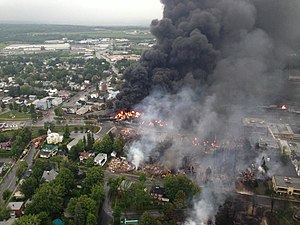LordBrownTrout
Diamond Member
- Nov 25, 2007
- 44,189
- 25,126
What about the union jobs in transport ? Wouldn't the pipeline destroy those jobs?
Canada will keep the jobs. Oil is transported by rail. Canada pacific and canadian national deliver the oil. Delivering by rail is much more dangerous than pipeline. In essence, we lost out on jobs and safety and protecting our land when O rejected the pipeline.


